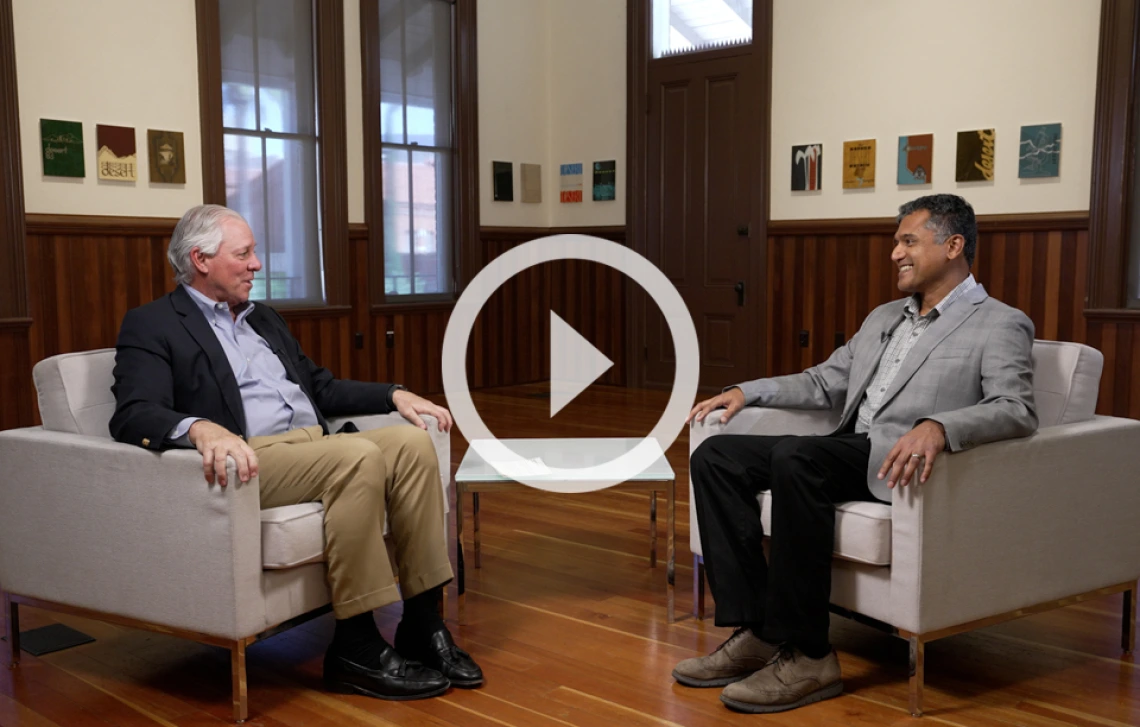Creating the Future of Medicine in Arizona: Dr. Robbins' Perspective

Dear Friends,
If you are keeping up with advances in medicine, you may have come across the term “precision medicine.” There are large federal grants supporting nationwide research programs focused on this area, including at the University of Arizona, and many people are hailing precision medicine as a game changer. This is why the University of Arizona, our state government, and many philanthropic partners are excited about the Center for Advanced Molecular and Immunological Therapies (CAMI) being developed by the University of Arizona Health Sciences at the Phoenix Bioscience Core.
But why or how does this approach change things? How will CAMI benefit Arizona? Will we see positive outcomes for individual patients, or is precision medicine just a buzzword?
The Origins and Potential of Precision Medicine
To understand the real, substantive benefits from precision approaches and the potential for CAMI, I recently sat down with Dr. Deepta Bhattacharya, professor of immunology in the College of Medicine – Tucson, and scientific advisor for CAMI. We discussed many things, including the tremendous advancement of the Human Genome Project (HGP) and how it set the stage for initiatives like CAMI. A 13-year, international program that culminated in the first human DNA blueprint, the HGP accelerated scientific discovery and its translation into patient care for a range of medical issues.
For example, Dr. Bhattacharya, a member of the University of Arizona Cancer Center, emphasized the evolving treatment of cancer. For many years, the best methods have utilized surgery to cut out a tumor and chemotherapy or radiotherapy to kill the cancerous cells, hoping the patient would not get too sick in the process. Now, we can also use biopsies to understand which genetic mutations are causing a specific cancer in a patient and then work to identify drugs that will target only those mutations. In essence, we are striving to turn the cancer switch from “on” to “off” based on our understanding of the root cause of the disease.
Why CAMI, Why The University of Arizona
CAMI will take this approach even further and build on the University of Arizona's longstanding excellence in health sciences research, education, and clinical care. As Dr. Bhattacharya explains it, advancements in our fundamental understanding of the human immune system enhance our treatment of individual patients in a range of areas, including cancer and autoimmune diseases such as Type 1 diabetes, as well as diseases rooted in inflammation or even aging. CAMI will enable what he described to me as “robust immune monitoring” for individual patients and allow care providers to make more informed decisions on behalf of – or with – their patients.
I have known Dr. Bhattacharya for years, having been at Stanford University at the same time, and we are incredibly fortunate to have him here in Arizona. He is a brilliant scientist, communicator, and teacher. His love for the University of Arizona runs deep, partly because he grew up in Tucson, but also because of his appreciation for the culture of collaboration that he has seen firsthand, and which he believes will allow CAMI to become a distinctive asset for the university and our state while serving the entire world.
You can see part of our conversation in this video, in which Dr. Bhattacharya describes the plans for CAMI, how it will work with our state’s culture of entrepreneurship, and what it will look like as Arizona becomes the epicenter of a seismic shift in medicine that benefits people right here and the world over.
Thank you for reading, and Bear Down.
Robert C. Robbins, M.D.
President
The University of Arizona

